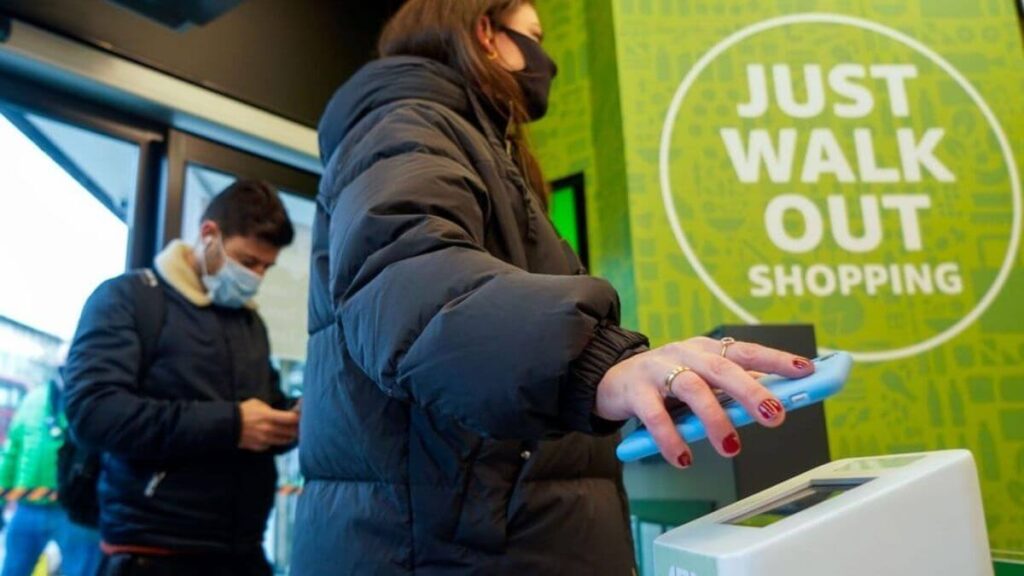
The retail and cloud giant is offering $10 in credit if you enroll your palm print in its checkout-free stores and link it to back to your profile.
Amazon introduced its new biometric palm print scanners, Amazon One, last year. Customers were able to purchase their desired products in specific stores by waving their palm prints over one of these scanners.
By February, the company branched out its palm scanners to several other Amazon stores, including 4-star ones across Seattle.
Fast forward to the present, and the biometric scanning technology has been welcomed in stores across the U.S., including New York, New Jersey, Maryland and Texas.
According to Amazon, the new hardware “captures the characteristics of your palm, both surface-area details like lines and ridges as well as subcutaneous features such as vain patterns, to create your palm signature.”
After you trade your palm print for $10, your data gets stored in your account, which then provides you with the ability to confirm your identity whenever you’re in one of Amazon’s stores.

The popular e-commerce firm allows customers to delete the collected data once they no longer want their account, or if they are inactive for two years.
Yet, it’s important to note that fingerprints, facial recognition, and other personal information are extremely sensitive data that can be accessed by companies seeking to maximize their data, and thus, profit.
Your palm print itself might not amount to much. However, linking the biometric data back to your account will enable Amazon to collect data like your shopping history, to ensure that targeted ads, offers, and recommendations will surely capture your interest.
So, you can kiss the $10 goodbye as Amazon has bigger plans than just collecting your palm print.
Back in 2018, Amazon was in hot water for its controversial facial recognition technology, which it sold to police and law enforcement.
The retail giant was the subject of lawsuits that accused the company of going against state laws prohibiting the use of personal biometric data without permission.
Albert Fox Cahn, the executive director of the New York-based Surveillance Technology Oversight Project, told TechCrunch that Biometric data is a method utilized by companies and governments to track citizens permanently.
“The dystopian future of science fiction is now. It’s horrifying that Amazon is asking people to sell their bodies, but it’s even worse that people are doing it for such a low price,” Cahn said, warning people that changing your name and social security number is doable but changing your palm prints is not.
“The more we normalize these tactics, the harder they will be to escape. If we don’t [draw a] line in the sand here, I am very fearful what our future will look like,” Cahn added.